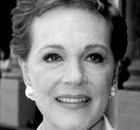-
-
MSNBC Marquee
Rihanna’s dad cut out of her life ‘over nothing’
Rihanna and her father both spoke to the press about their most recent estrangement.
Theater & Arts
Dadawa's going places
By Chen Nan (China Daily)
Updated: 2009-11-26 10:34
When Dadawa first went to Tibet autonomous region in 1994 she was unimpressed by the potholed roads and lack of electricity, but the magical land nevertheless fascinated the Guanghzou girl.
"It seems like I was a born risk-taker," says Dadawa (also known as Zhu Zheqin). "I was raised in a commercial environment, in which people were busy making money and human nature was killed by the intense competition. I always wanted to jump out of it. The trip to Tibet shocked me."
While the singer-songwriter returned to Tibet eight times in the following eight years, she has also traveled to other ethnic regions in the country in search of inspiration. Now, she is tasked with saving local music, which is facing extinction.
 |
|
Dadawa with a local artist in the Xinjiang Uygur autonomous region. |
Commissioned by UNDP as a goodwill ambassador to protect and revitalize the cultural wealth of ethnic minorities in China, Dadawa recently visited minority regions, including Yunnan, Xinjiang, Tibet, Guizhou, Inner Mongolia and Qinghai, to compile traditional ethnic music.
"It inspires energy, excitement and reflection," says Dadawa of the four-month trip, which she described as "a willful romance" and "a stunning review".
After the success of her debut album Yellow Children in 1992, her second album Sister Drum in 1995 was the first Chinese album released in 56 countries and exceeded sales of 1 million copies outside China.
In 1998, she recorded Voices From the Sky and then she took a long break to travel around the world. In 2006, she returned with a new album, Seven Days, with Chinese folk melodies replacing the Tibetan ones, for which she was nominated for a BBC World Music Award in 2007.
"I don't have an incredible facility for composing and arranging," she says. "I'm really slow making new albums. All I have is my ear."
Her recent trip was recorded for the Travel Channel and called Show The World - Cultural Based Development Goodwill Action for Ethnic Minorities in China.
"They were excessively romantic, full of drama," she says of her travels. "I was enlightened and overwhelmed by those primitive and authentic cultures. It is a reward for me to transform what we have collected into an object of beauty to be shared by more listeners."






